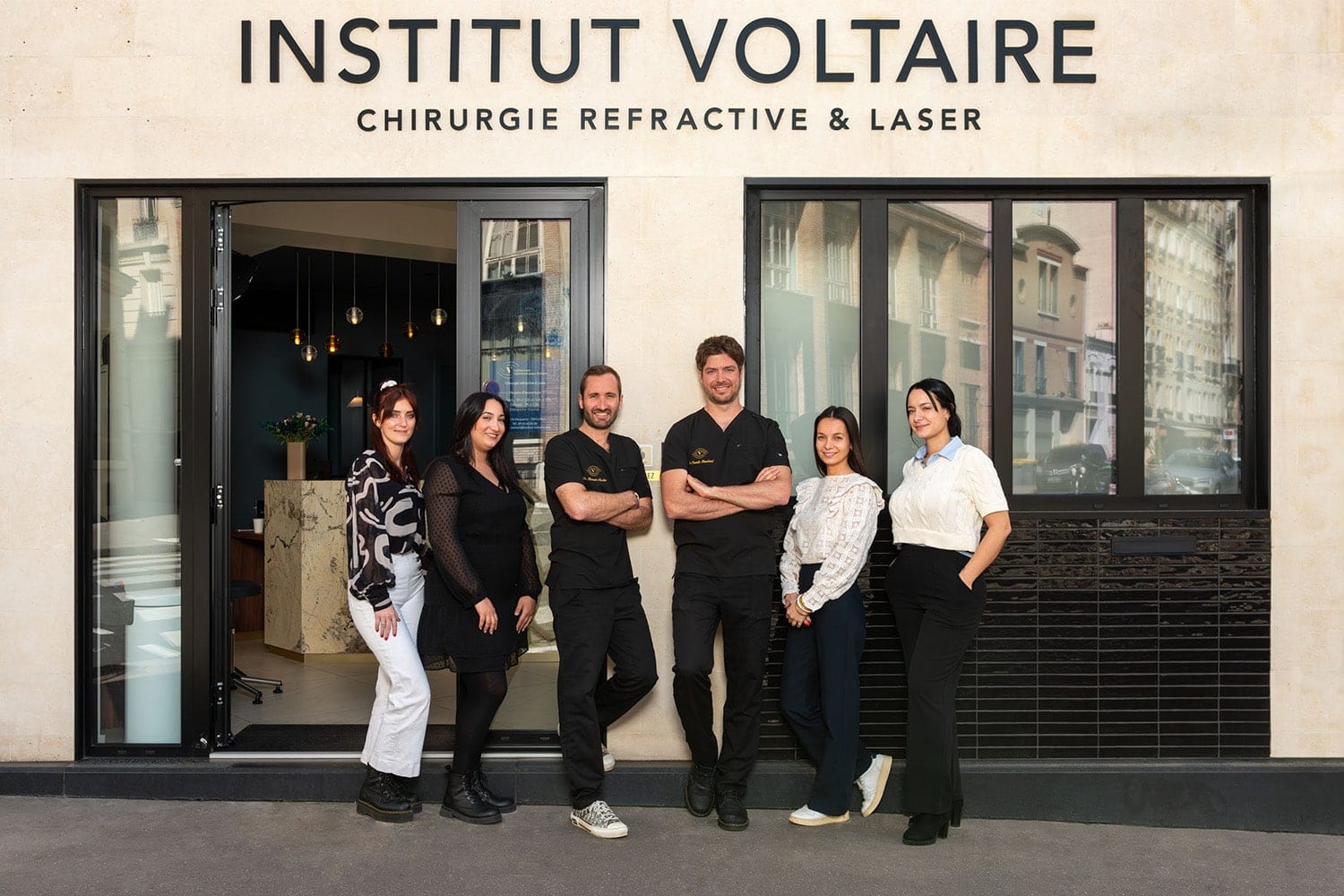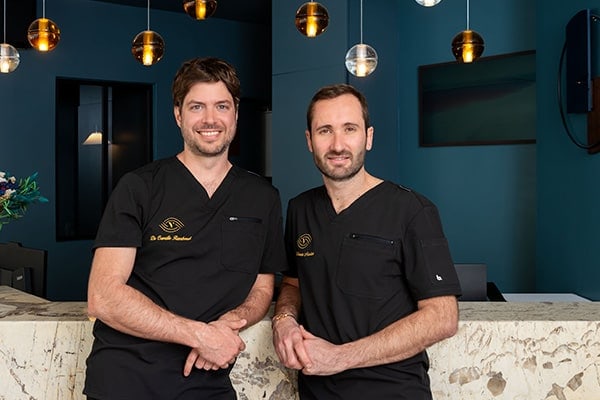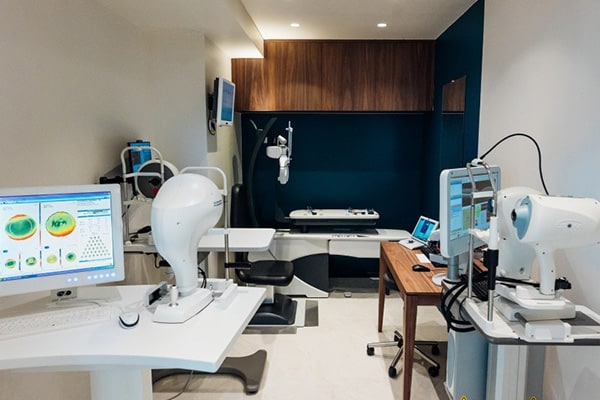
Institut Voltaire
Laser eye surgery in Paris
Find out all you need to know about the Institut Voltaire, the different visual disorders treated at our center, and the typical path taken by our patients. Are you ready to upgrade your vision ?
Are you
Myopia
Myopia
Myopia, or nearsightedness, is when you can’t see clearly at a distance. The image forms in front of the retina because the eye is too long or the cornea is too curved.
Presbyopia
Presbyopia
Presbyopia is when we find it increasingly difficult to see up close as we age. It’s as if our eyes become a little rigid.
Hyperopia
Hyperopia
Astigmatism
Astigmatism
Astigmatism is when the shape of the eye is not quite round. It’s like looking at the world through a distorted glass.
Get to know us
A team of expert surgeons at your service
Institut Voltaire was co-founded by Drs. Rambaud and Nicolau. With a wealth of experience in cataract surgery, our surgeons work together to put their shared expertise to work for their patients.
A fully equipped Institute
Cataract treatment requires rigorous monitoring. That’s why Institut Voltaire boasts a state-of-the-art technical platform. Whether for an accurate cataract diagnosis to determine your specific needs or for cataract surgery, we are fully equipped to handle every eventuality, ensuring follow-up care that guarantees both comfort and safety.
What is refractive eye surgery ?
Laser refractive eye surgery permanently corrects vision disorders such as myopia, hyperopia, astigmatism, and presbyopia. It acts on the cornea and/or crystalline lens, which are responsible for transmitting light to the retina.
Using a laser, the surgeon reshapes the cornea to improve the eye’s focus. The procedure is quick (10 to 30 minutes), painless, and performed on an outpatient basis, without hospitalization or general anesthesia. Mild discomfort may occur after the operation, but it can be relieved with appropriate treatment.
Quick and long-lasting results
Long-term savings
Although the initial investment is higher, refractive surgery is more cost-effective in the long term, as it eliminates the recurring expenses associated with glasses and contact lenses.
Freedom regained
Laser eye surgery procedure types
What about cataract ?
What is it ?
Cataracts are a common eye condition characterized by the progressive opacification of the crystalline lens. This age-related degenerative disorder gradually impairs vision, making medical treatment essential.
What are the symptoms ?
Symptoms of cataracts include blurred vision, increased sensitivity to light (photophobia), impaired night vision (making driving more difficult), altered color perception, and double or multiple vision.
Which treatments are available ?
The most common treatment is surgery, during which the opacified lens is removed and replaced with an artificial lens, restoring the patient’s visual clarity.
Typical Patient Journey
First appointment
At Institut Voltaire, the first appointment includes an eligibility assessment, eye exams, and necessary tests conducted by the surgeon. If surgery is possible, the procedure is explained, and a 10-day reflection period applies. Patients referred by an ophthalmologist may first see an orthoptist for further tests.
Second appointment
A second consultation is optional but may include a Skiacol test to assess vision and examine the eye’s fundus. This test requires eye drops to be applied before the appointment, temporarily affecting vision. Surgery may be scheduled during this visit.
Surgery
During surgery, a calming environment with soothing scents and music therapy helps reduce anxiety. The experienced team provides personalized care, answers patients’ questions, and ensures a reassuring experience.
Follow-up appointments
After surgery, follow-up consultations monitor recovery and results. Depending on the technique used, visits take place from the day after surgery to up to five days later, followed by a check-up at 4 to 6 weeks, with additional visits as needed.
Let’s keep in touch
Location
Metro access
Line 2 – Philippe Auguste
Line 9 – Voltaire / Charonne
Bus access
N°76 – Charonne – Voltaire
N°56 – Voltaire – Léon Blum / Gymnase Japy
Phone number
Schedule your appointment on Doctolib
Appointments can also be booked directly on Doctolib’s website.


